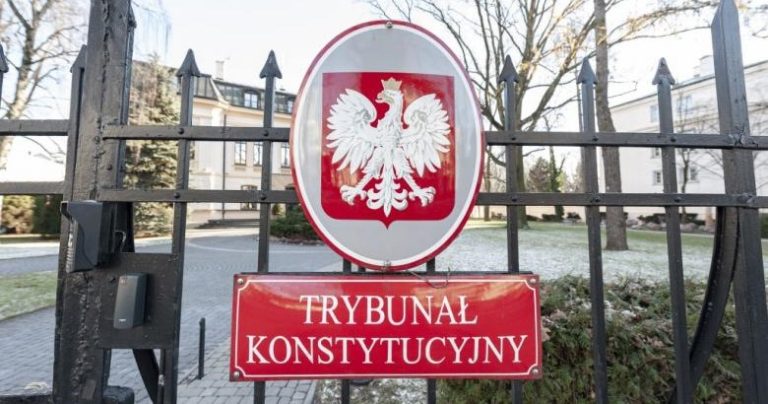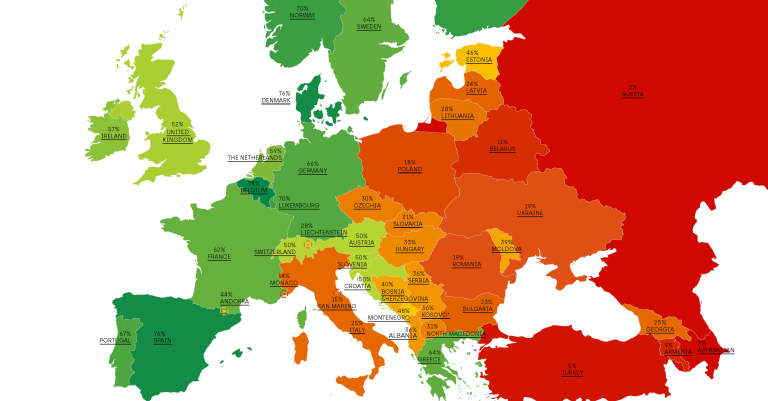New Polish government announces halt to logging in “most valuable forests”

Poland’s new government has announced a halt to planned logging in what it says are some of the country’s most valuable forests. The previous government, which ruled from 2015 until last month, often faced criticism for overseeing an increase in logging.
“We are moving from words to actions,” said climate and environment minister Paulina Hennig-Kloska on Monday. “We have decided to issue the first decision to limit and suspend logging of the most valuable forest areas in Poland. It’s time to move saws out of parts of Polish forests.”
The logging restrictions will be introduced for six months in ten designated areas, including parts of northeast Poland, the southeastern Bieszczady mountains, the Tricity Landscape Park on the Baltic coast, and around Wrocław, Poland’s third largest city.
Spełniamy obietnice. Ograniczenie wycinek w najcenniejszych polskich lasach – etap pierwszy. Nasze działania widać z kosmosu 🙂 Pracujemy dalej! pic.twitter.com/EsZkHCi7Qq
— Mikołaj Dorożała (@DorozalaMikolaj) January 8, 2024
The climate ministry says the decision was to protect forests of particular value, such as those used by cities with large numbers of residents, those linked to health resorts and those with particular “historical and cultural value”.
One example of the latter is the Augustów forests in the Podlaskie province, which are essential for the continuation of traditional beekeeping – a practice added in 2020 to UNESCO’s list of the Intangible Cultural Heritage of Humanity.
The ministry noted that forests surrounding large cities such as Wrocław and Białystok help increase water retention and thereby prevent flooding. The limitations will also help increase conservation efforts in areas that are part of the EU’s Natura 2000 network.
Deputy minister Mikołaj Dorożała said that the new restrictions would reduce planned logging by between 20% and 30%.
The traditional tree beekeeping practices of Poland and Belarus have been added to @UNESCO’s list of the Intangible Cultural Heritage of Humanity.
It is only the second Polish tradition to be included on the list https://t.co/CXbMvmAphZ
— Notes from Poland 🇵🇱 (@notesfrompoland) December 19, 2020
Before Monday’s announcement, Hennig-Kloska held meetings with local politicians, NGOs, scientists and residents from around Białowieża forest in northeast Poland. She announced plans to create a special “constitution” aimed at protecting one of the last remaining parts of Europe’s primeval forests.
“We are working on a systemic solution that will include more areas and which will be consulted with representatives of the State Forests [the state forestry agency], local authorities and local communities,” said the minister.
The former Law and Justice (PiS) government often faced criticism from environmentalists over its increase in logging, especially in Białowieża. Last year, the European Court of Justice ruled that Poland’s forestry law does not comply with the country’s obligations under an EU director to protect natural habitats.
The new ruling coalition, which took power last month, has pledged to protect and improve Poland’s natural environment, including by creating more national parks.
The new government wants to create Poland’s first new national parks in over two decades, as well as to expand existing ones.
The climate minister’s party notes that national parks cover only 1.1% of Poland’s land area compared to an EU average of 3.7% https://t.co/61TCuiUF7N
— Notes from Poland 🇵🇱 (@notesfrompoland) December 28, 2023
Agata Pyka is an assistant editor at Notes from Poland. She is a journalist and a political communication student at the University of Amsterdam. She specialises in Polish and European politics as well as investigative journalism and has previously written for Euractiv and The European Correspondent.






